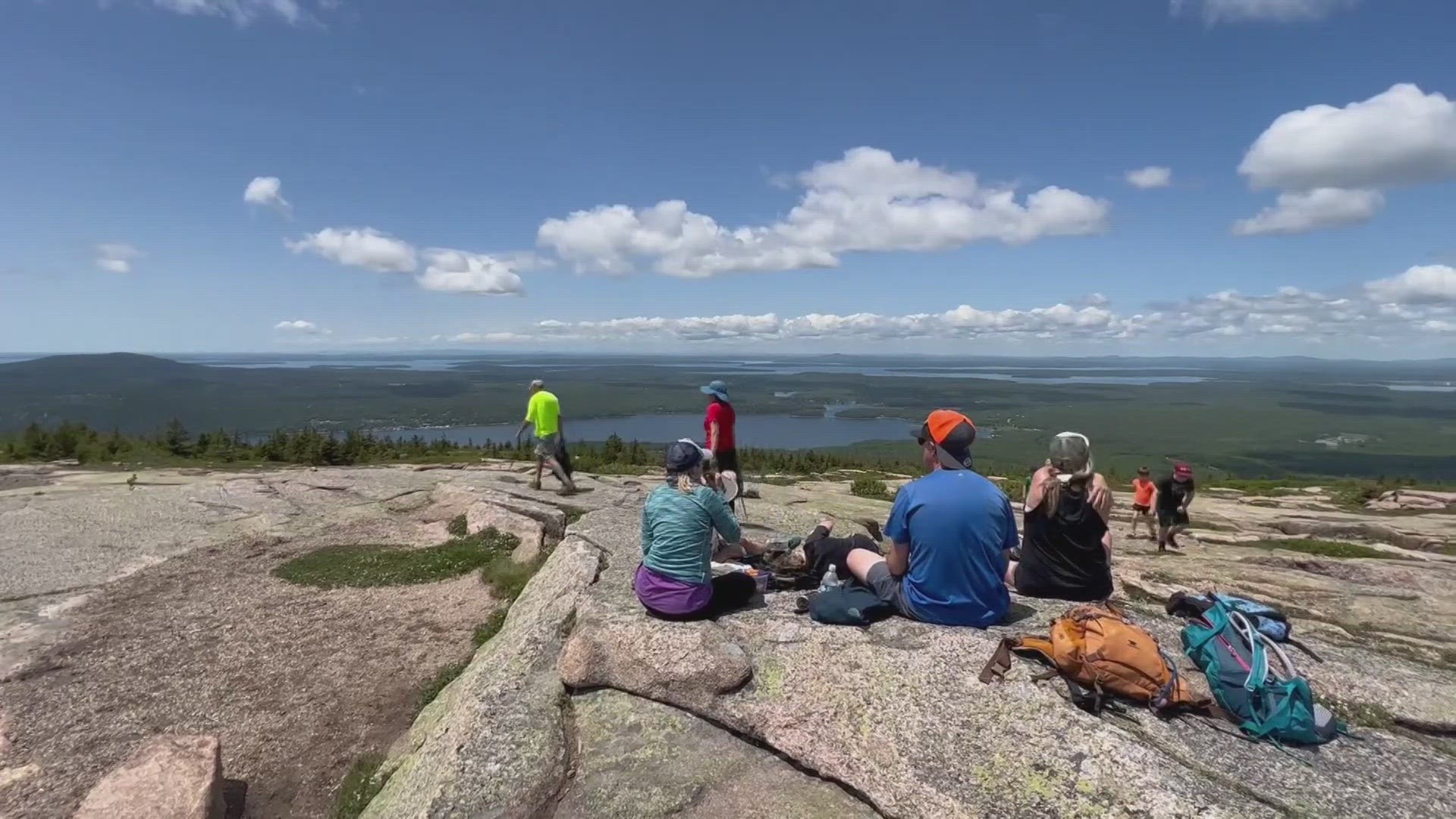MOUNT DESERT, Maine — Acadia National Park is a Maine gem that attracts millions of visitors from all over the world. To ensure it will continue to thrive for generations to come, restoration is essential.
This week, the park held a "Save Our Summits" hike-a-thon, relying on volunteers to help get soil to some of Acadia's summits only accessible by foot.
Seventy-two volunteers hiked more than 1,540 pounds of soil to Sargent and Penobscot's remote summits, according to Amanda Pollock, the park's Public Affairs Officer.
"This was a really unusual project, you know, acting like a pack animal, hauling dirt up a mountain," Tim Schorer, a Friends of Acadia volunteer, said.
Acadia National Park, the Schoodic Institute, and Friends of Acadia have studied the science behind summit restoration for the past decade and observed a lot of plant degradation at the tops of some mountain summits, according to Chris Nadeau, Schoodic Institute climate adaptation scientist and co-leader for the restoration efforts.
"It's really our duty to try to figure out how we can restore these places so that the next generation of people will be able to come here to see these amazing places and see these really unique plants that really, many of them only occur on mountain summits in Acadia," Nadeau said.
Over the years, Nadeau said the park tried to rope certain areas to help the vegetation come back. However, researchers learned the plants wouldn't recolonize due to the lack of soil in degraded areas, which can be caused from people walking through plants on what's considered a social trail.
"Right now, it's feeling pretty heavy, but it will all be worth it in the end, and I'm excited for the great view at the top," Ethan Lewis said.
"Well, for me, I'm tired. I'm really tired," his friend, Jodelin Dulaurieo, responded.
Bringing soil to the summits is the first step to plant recolonization, Nadeau said, which is why it's essential for volunteers to help ensure Acadia National Park will continue to thrive.
"Hiking is already like a very fulfilling feeling getting to the top of a summit looking around and to just have some added service on top of that is great," Lewis said.
"Humans have an amazing capacity for harm, but we have an amazing capacity for healing and restoration," Eric Stiles, President and CEO of Friends of Acadia, said.

